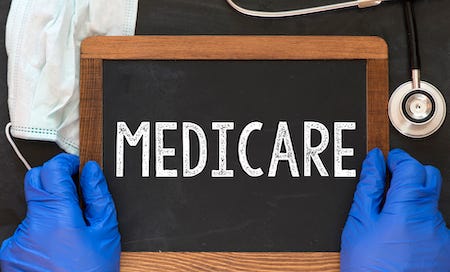How landmark Medicare bill will lower prescription drug costs
A look at key provisions of the Inflation Reduction Act
The climate and healthcare legislation that Congress is set to approve later this week includes the most important improvements to the Medicare program in nearly two decades. The changes aim to address one of the biggest concerns of seniors: the fast-rising cost of prescription drugs.
The U.S. Senate passed the sweeping $430 billion bill on Sunday. The House of Representatives will likely vote on it on Friday and it will then head to President Joe Biden for his signature.
The Inflation Reduction Act of 2022 empowers Medicare to negotiate the price of a small number of high-cost drugs with pharmaceutical companies for the first time, starting in 2026. That’s an important step toward fixing one of the most egregious flaws in the legislation that created the Part D prescription drug program in 2003 - a provision that specifically forbids Medicare from negotiating prices.
As big as negotiating drug prices may turn out to be over the long haul, the bill makes other important changes to prescription drug coverage that will impact the pocketbooks of seniors, starting next year.
The bill includes reforms that should begin to reduce Medicare drug costs, starting next year, and phases in additional important changes in following years. A critical change is a cap on total annual out-of-pocket costs that will be phased in over two years, starting in 2024. Another is a $35 cap on monthly insulin costs (Note: the provision capping insulin for people enrolled in private insurance plans was stripped from the bill, but retained for Medicare enrollees).
In my Reuters Money column this week, I examine the key changes to expect in Medicare - and when they will roll out.
The hidden cost of IRA rollovers
When you retire or change jobs, you have a decision to make about your 401(k): Leave it where it is, or roll it over to a traditional or Roth IRA. A good case can be made for either decision, depending on the features of your workplace plan and the IRA and underlying investments you might select.
But one thing is clear: The decision can be very consequential for your investment outcome—mainly because of fees. If you roll over your 401(k) to an IRA with higher costs than your workplace plan, the move can do substantial damage to your portfolio value over time.
New research by The Pew Charitable Trusts finds that investors potentially can lose thousands of dollars over time owing to what might seem like small differences in total expenses—especially the cost gap between retail and institutional shares
Learn more in my Morningstar column.
Five things financial advisers get wrong about Social Security
A growing number of financial advisors have added Social Security planning to their practices in recent years, and that’s good news for their clients. Social Security is the most important retirement benefit for most households, and making smart decisions about claiming can be a game changer.
That doesn’t mean advisors are getting everything right about Social Security and its complex rules. I asked Martha Shedden, president of the National Association of Registered Social Security Analysts, which has trained more than 3,000 advisors on how to work with clients on Social Security decisions, what errors advisors often make when guiding their clients on Social Security decisions are. Here are the five most common advisor errors and misunderstandings that she has observed.
What I’m reading
Republicans are coming for Social Security - Democrats, take note . . . Why life in your 70s may be your happiest ever . . . The local tax breaks that many retirees should know about, but don’t . . . . Our uninsured rate is at a record low.



